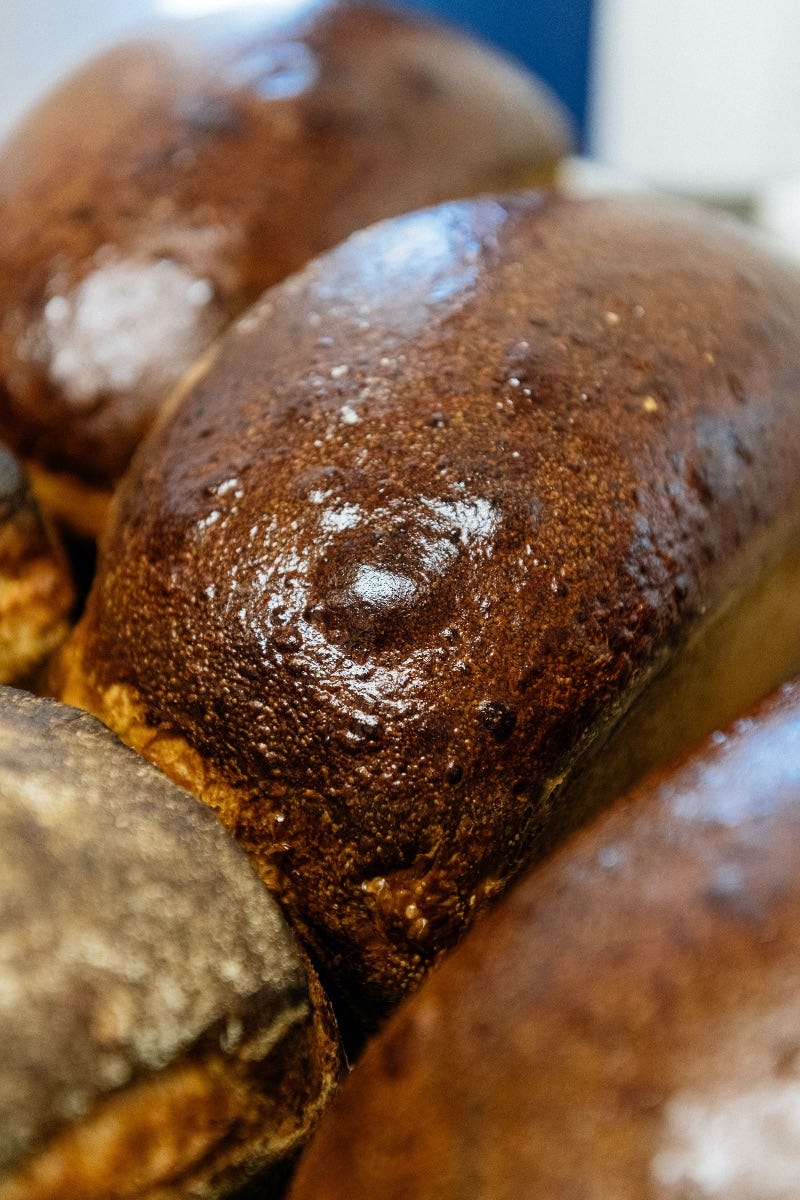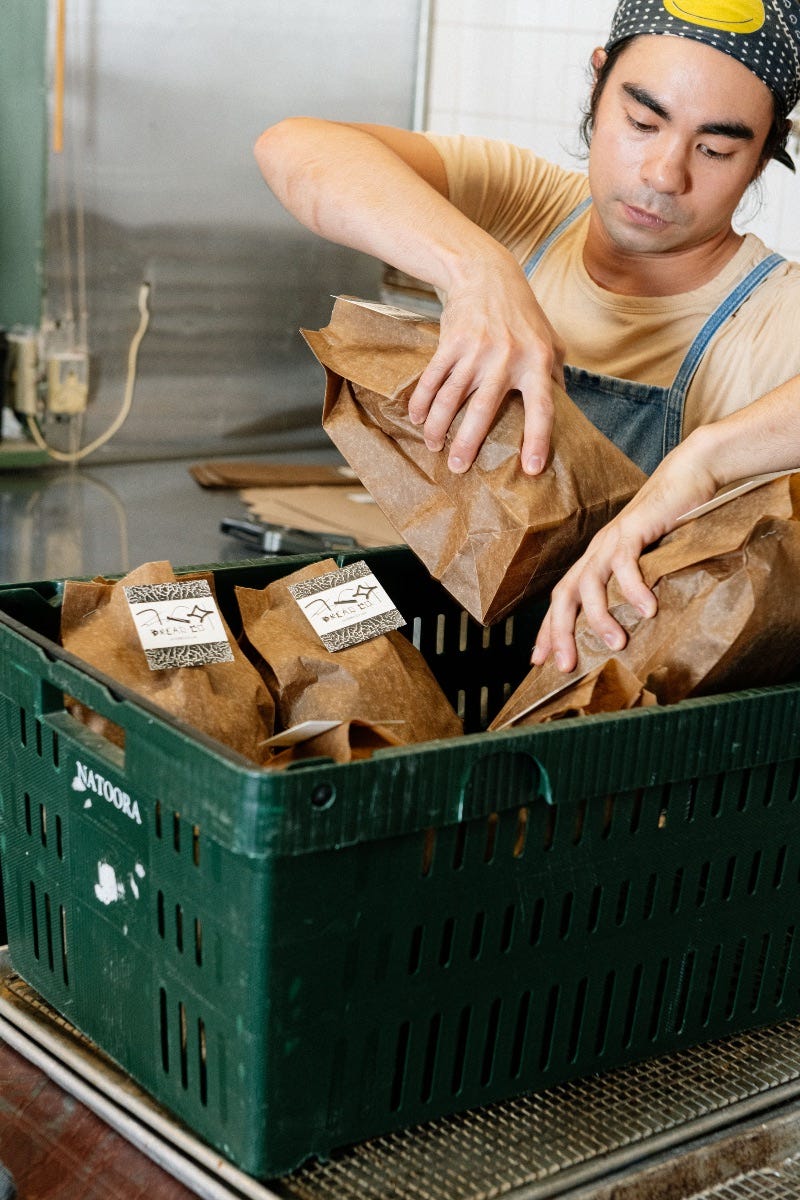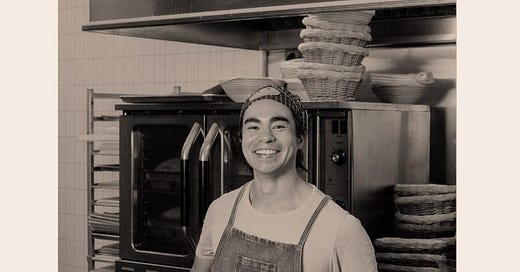The Brooklyn Baker Who Will Make You Rethink Power
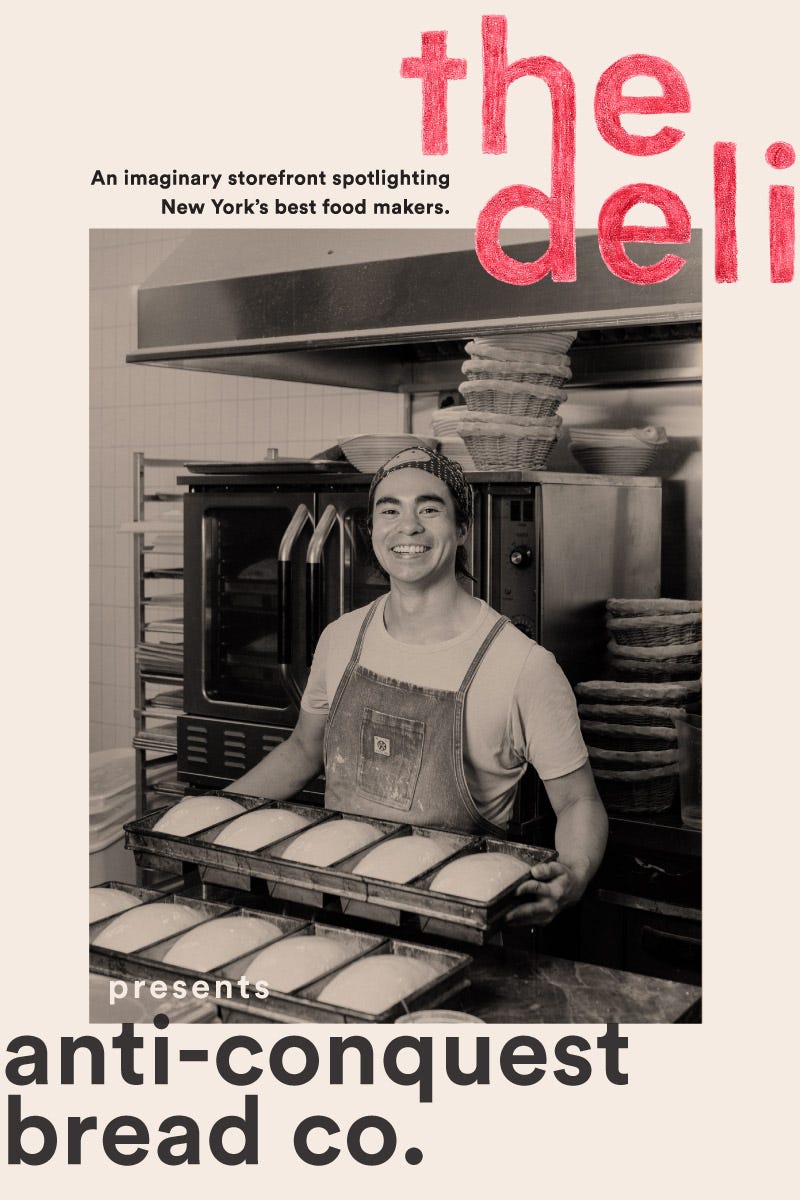
The Deli is an ode to the artisanal food makers of New York. A few weeks ago, we spoke to a diverse group of beverage makers for a late-summer spotlight on some of the best drinks available in New York. The subject of this week’s issue may seem much more straight-forward. To start, there is only one subject, Tyler Lee Steinbrenner of Anti-Conquest Bread Co., and he makes bread and related goods in Carroll Gardens, Brooklyn. But the half-Filipino, half-German baker’s approach is anything but simple: for Steinbrenner, bread is an artistic pursuit that engages with culture while exploring the science of fermentation and equity in the food and agriculture industries.
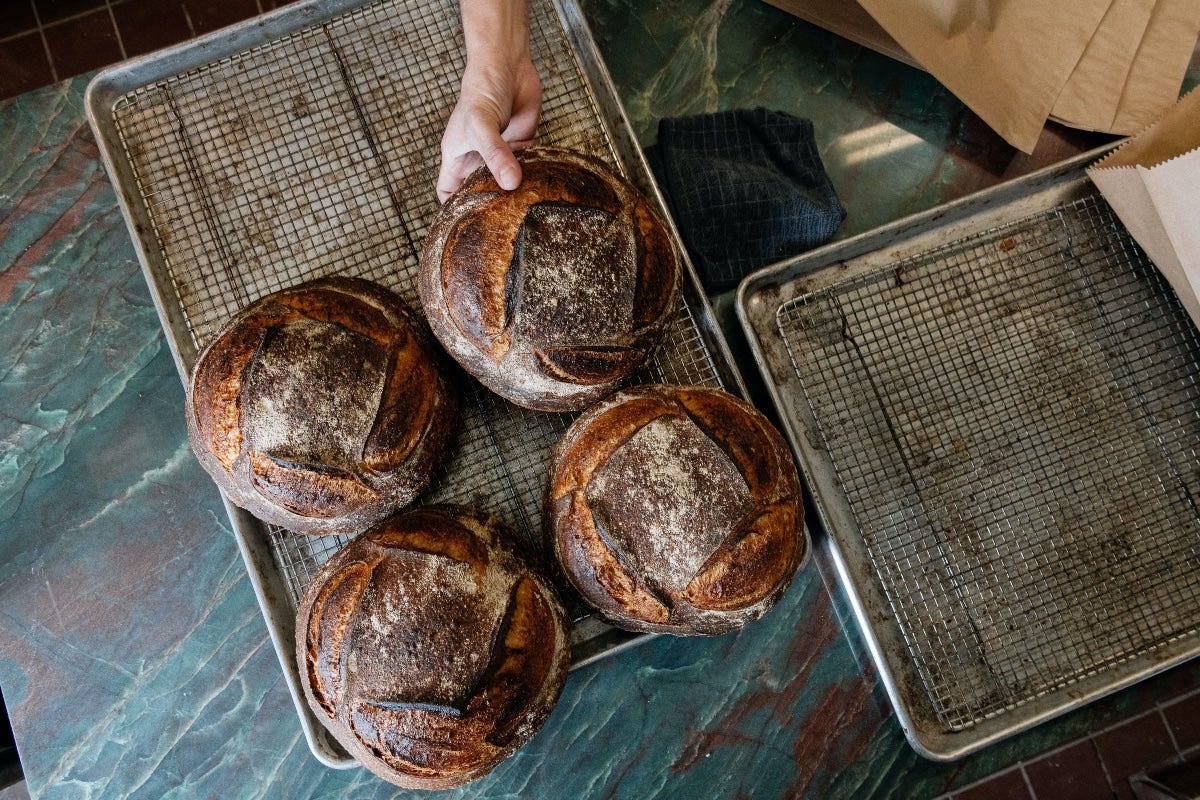
The Product: Holistically baked, wildly fermented, and hand-stretched breads.
The Deli Pick: ACQ Milk Bread.
How To Buy: Reserve your loaf in advance on ACQbread.com and pick it up from the bakery on Tuesday, Friday, and Saturday from 4-7pm to get it hot from the oven, or order through Natoora for home delivery.
Price: $8-15.
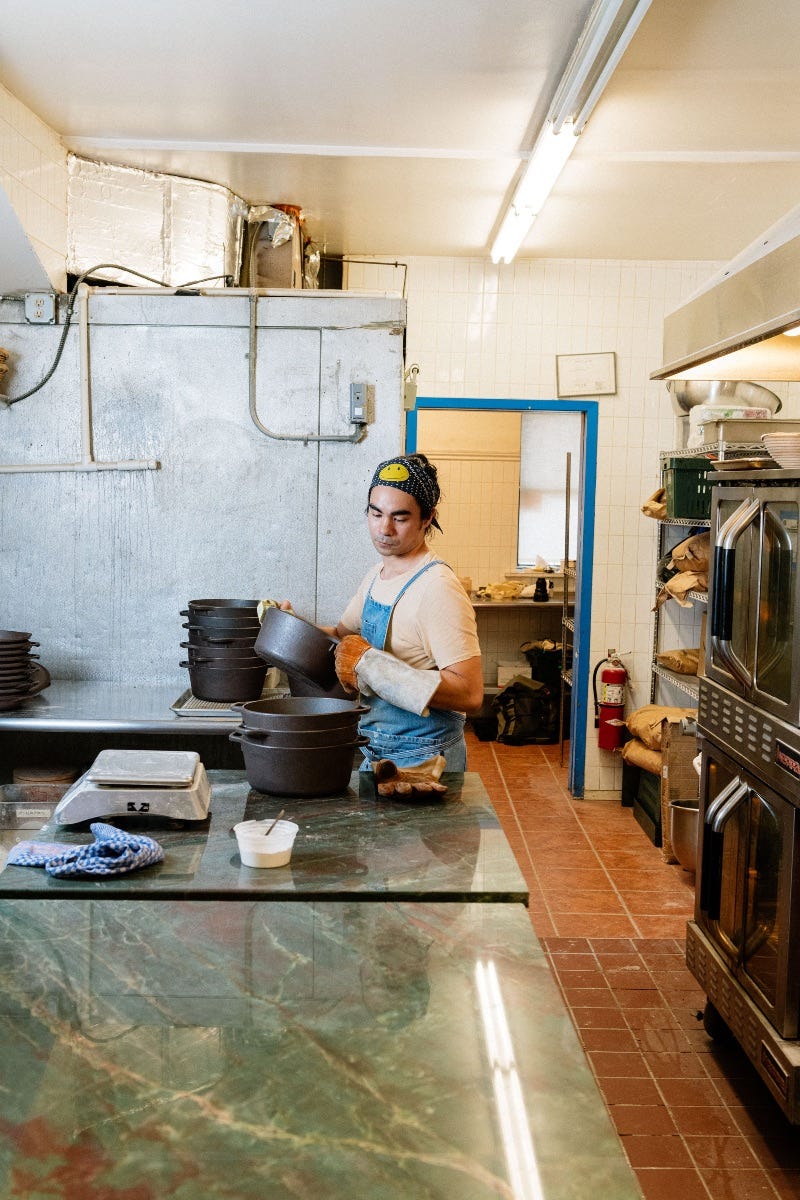
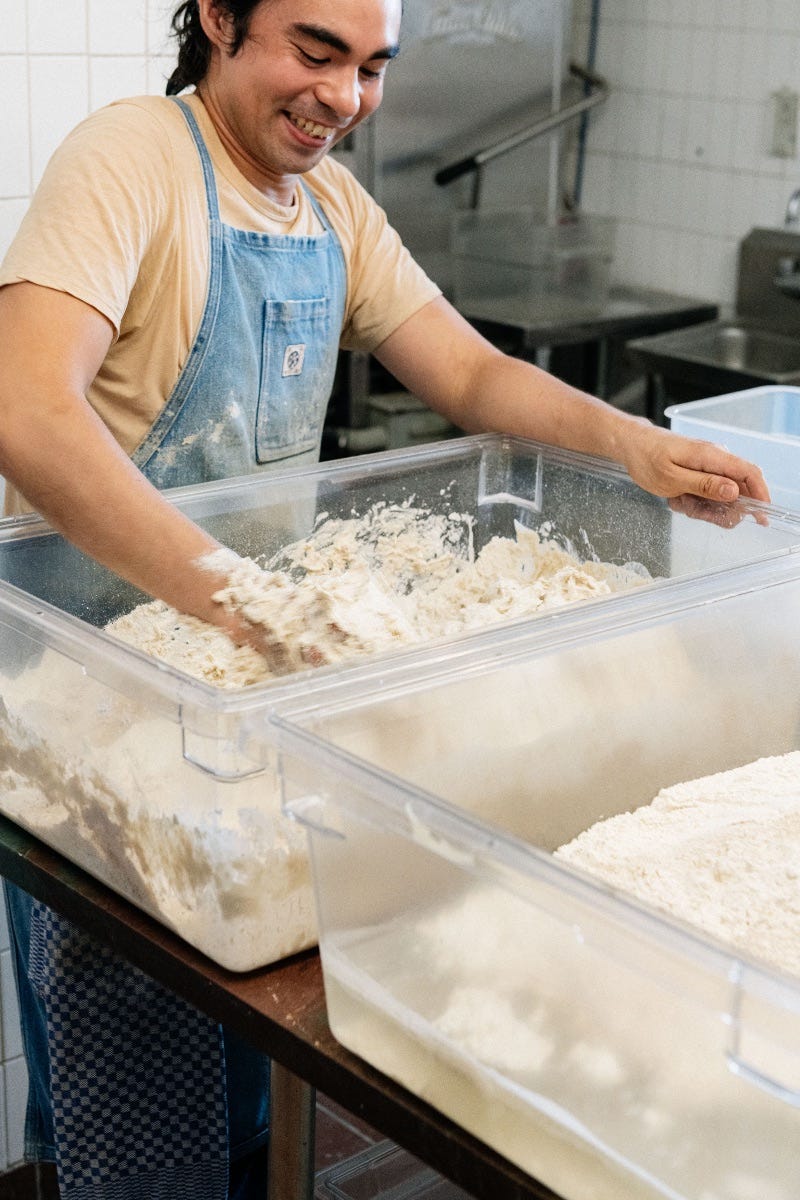
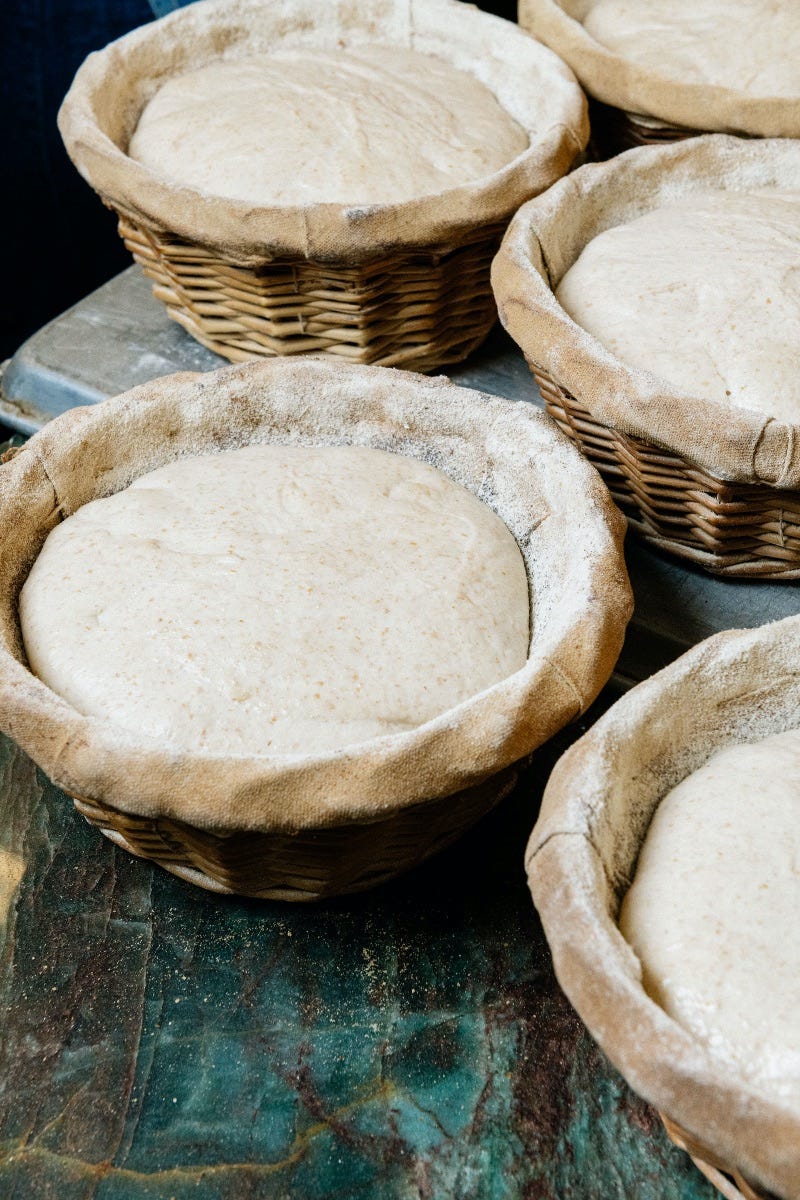

There was a defining moment. After high school, I went to RISD for painting, and [spent a semester] studying in Rome. I was understanding my shelteredness, having only lived in and around Philadelphia at that point, and Rhode Island for university, and I was making very confused contemporary video pieces. I was seeking inspiration when I stumbled on food, which was much more profound to me than anything else I was experiencing at the time. I was like, “What am I going to do in Italy? Am I going to sit around trying to milk myself for some shitty undergrad art ideas or am I going to go eat pizza?” That was when I decided that culinary arts was going to take over a lot of my artistic practice.
After Rome, I became a ramen chef and engaged with noodle craft, then I moved to San Francisco, working for Dominique Crenn, and was thrust into the bread program there very immediately. Then I moved to Thailand and was missing bread, so I taught myself wild-leavening practices. And then coming to New York, I was operating the fermentation program for Aska, engaging with microbial activity on a very deep level. I was proud of the work there, but working incredible hours.
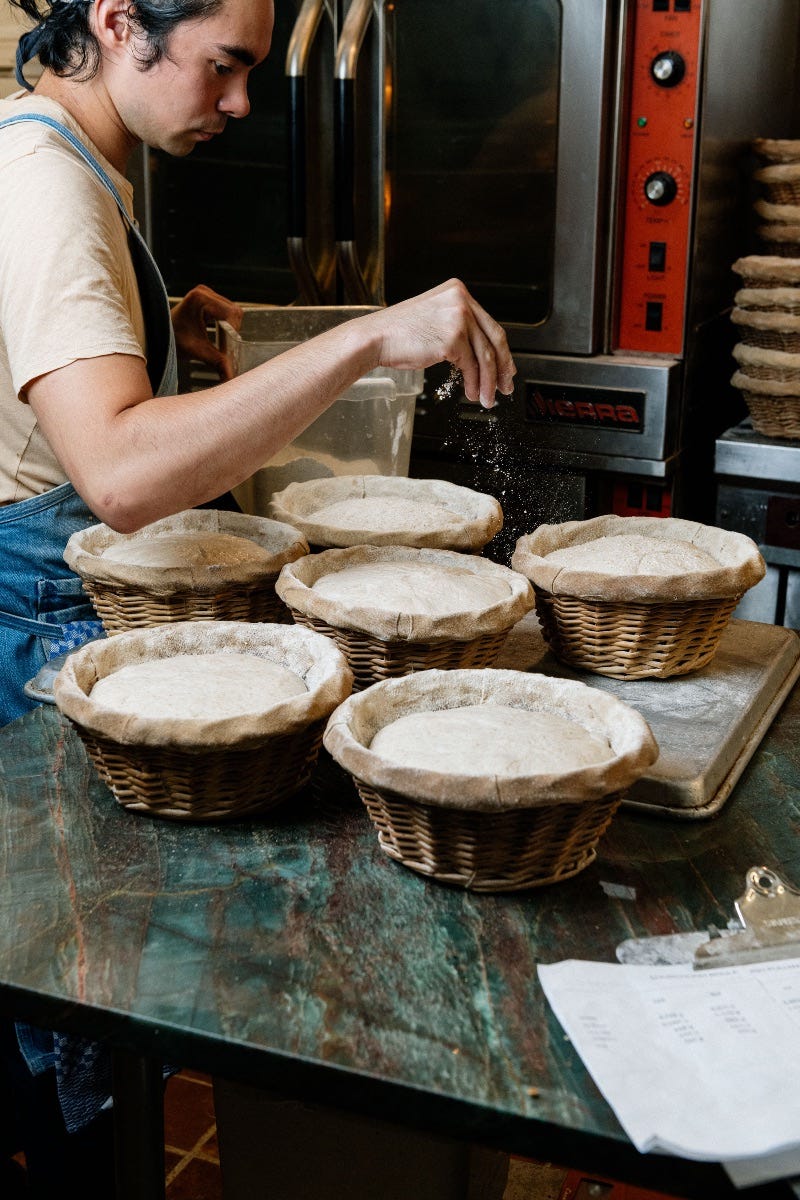
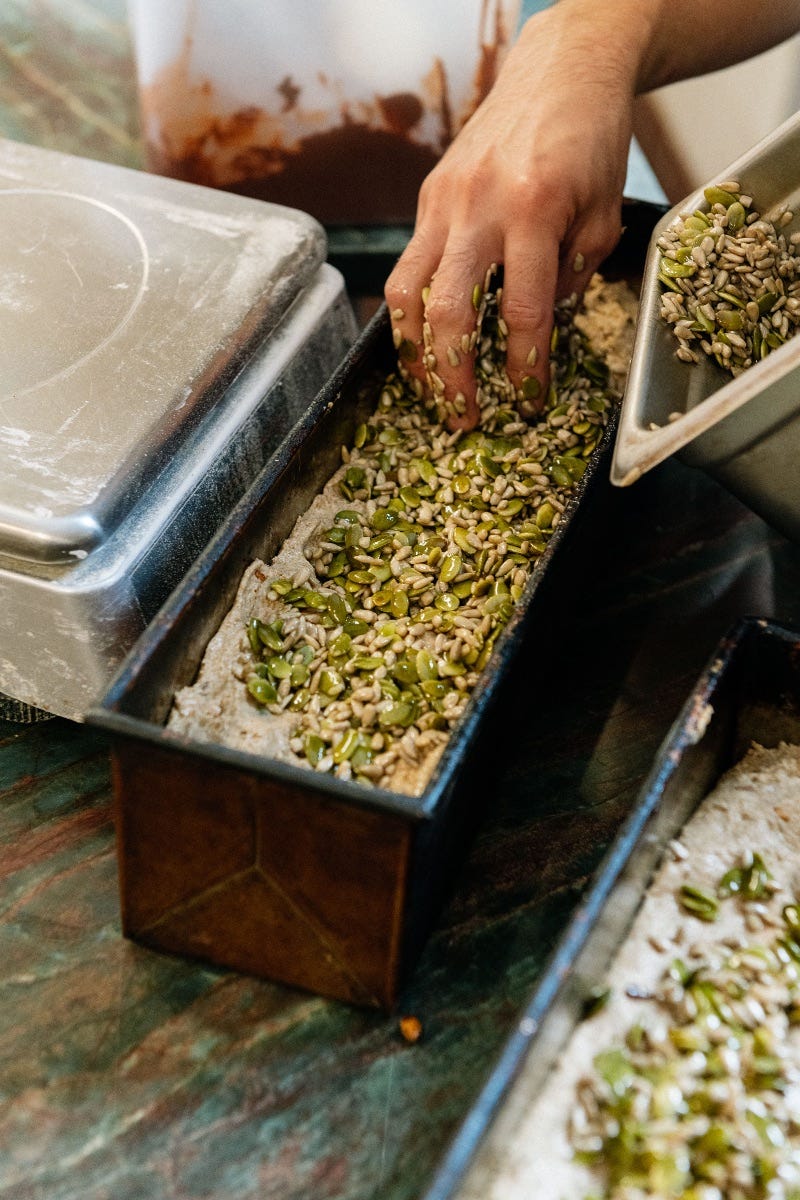
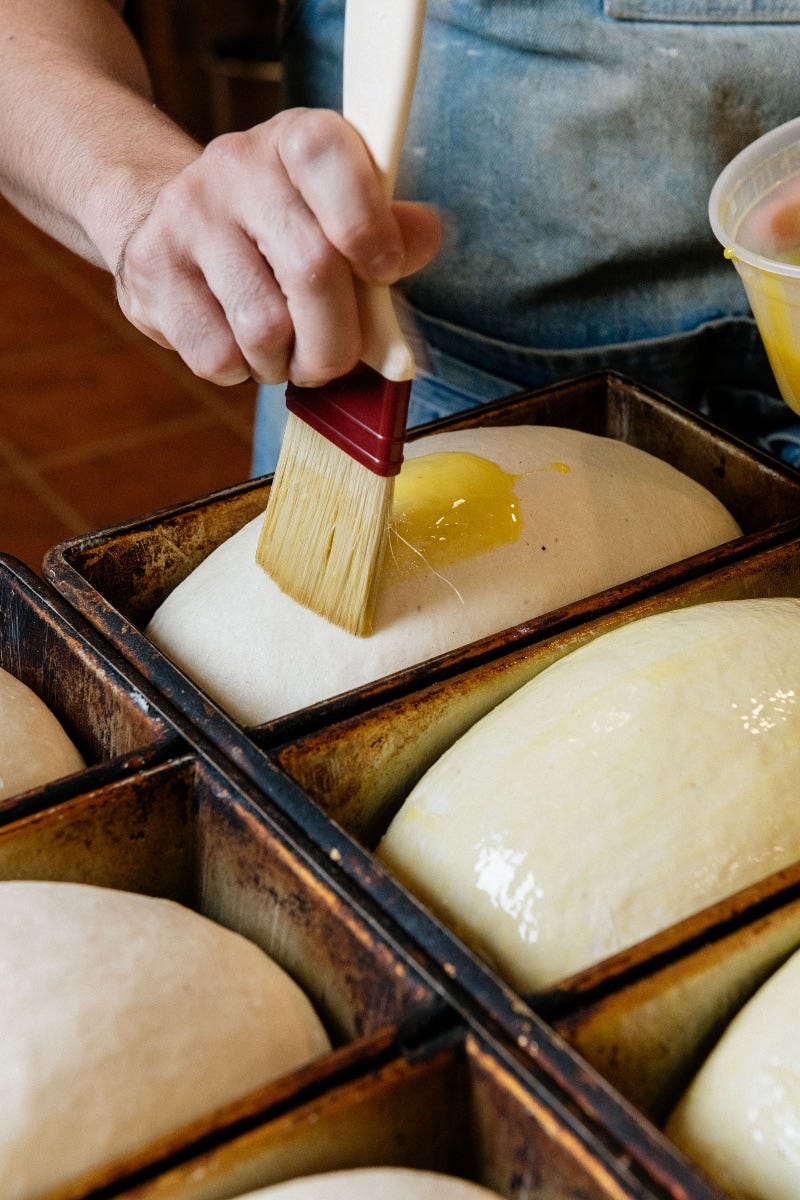
When everything shut down, I started reading a book [by Peter Kropotkin] called “The Conquest of Bread,” which is like a starter manual for critical anarchist theory. It helped me to clarify my thoughts about the consolidation of power in the food industry, and [made me want] to focus explicitly on makers’ independence. The ideological rift was pretty severe. I felt angry that I had been committed to a practice that doesn't help the world. Other people just completely switch careers, but I wanted to continue being invested in culinary practices. [Unlike restaurants, especially fine dining], a bakery is actually sustainable and fair to the people involved, and offers the most emotional, wholesome and nutritious experience to whoever's choosing to eat them. It has a more simple financial model and does not require creating an abstract cultural experience, since you’re selling a daily food item.
I started using my apartment to bake loaves of bread for mutual aid and donation drops and just for friends, and then searched for a bakery on Craigslist. Less than a month later, I signed a lease. With this bakery, at least, I don't compromise anything, and it still seems to be viable. That's not something I've ever experienced in any restaurant.
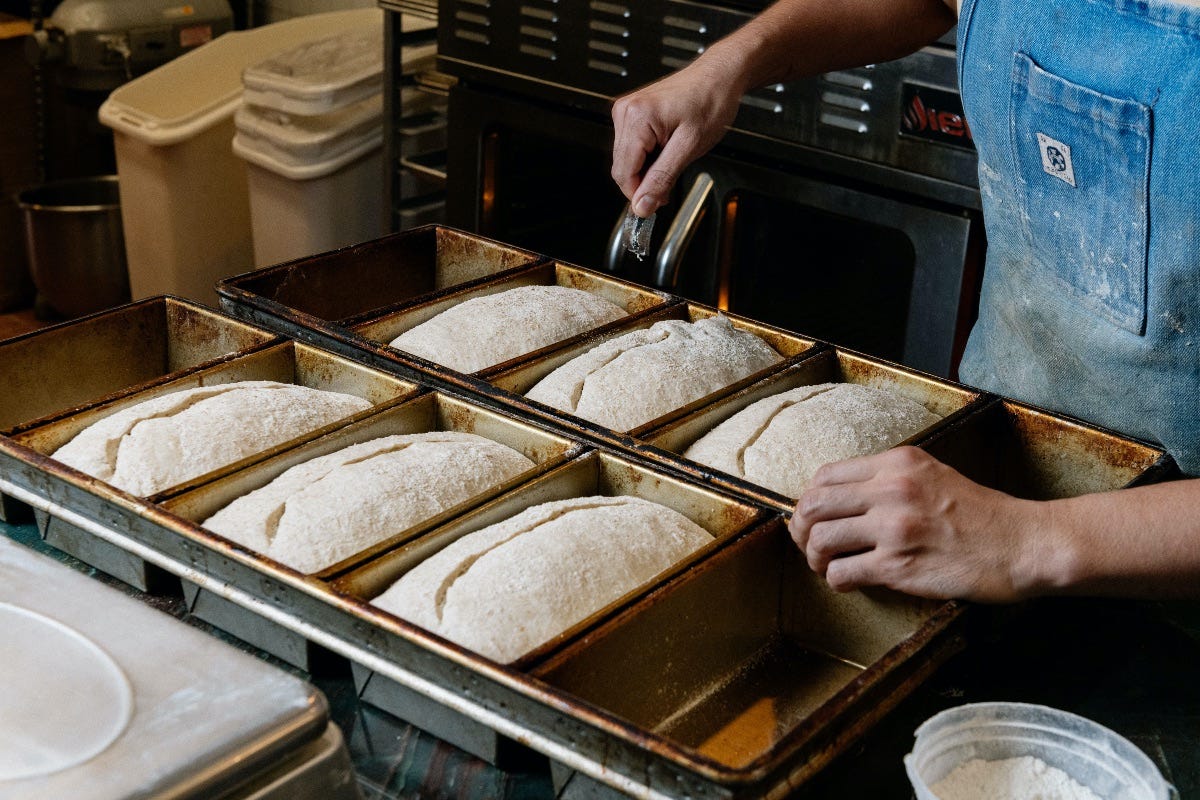

Anti-Conquest Bread Co. is about really focusing on how to not waste, how to make something as soulful as I possibly can, by literally hand mixing everything, baking everything on an individual basis, and doing everything to order. To me, that is a way of talking about decentralizing power. I’ve been doing this project every day for a year now, and I'm about to kind of reinvest in finishing the build out of this space to make it into a more sustainable operation. In the past year I baked in the realm of 10,000 cast iron loaves, and I've hand mixed between 15,000 to 18,000 loaves of bread, which isn't sustainable but it was pretty fun.
My intention is to create a brand that is beautiful in taste, in aesthetics, in concept, and use it to signify the agriculture behind it. It was born out of artistic education, and I just treat the bakery as a studio. I want to continue thinking of it as an artistic practice that speaks about organic agriculture in upstate New York, organic wheat farming, heritage, restoration of wheat varieties and not be overly distracted by the financial and economic constraints of operating a bread business.
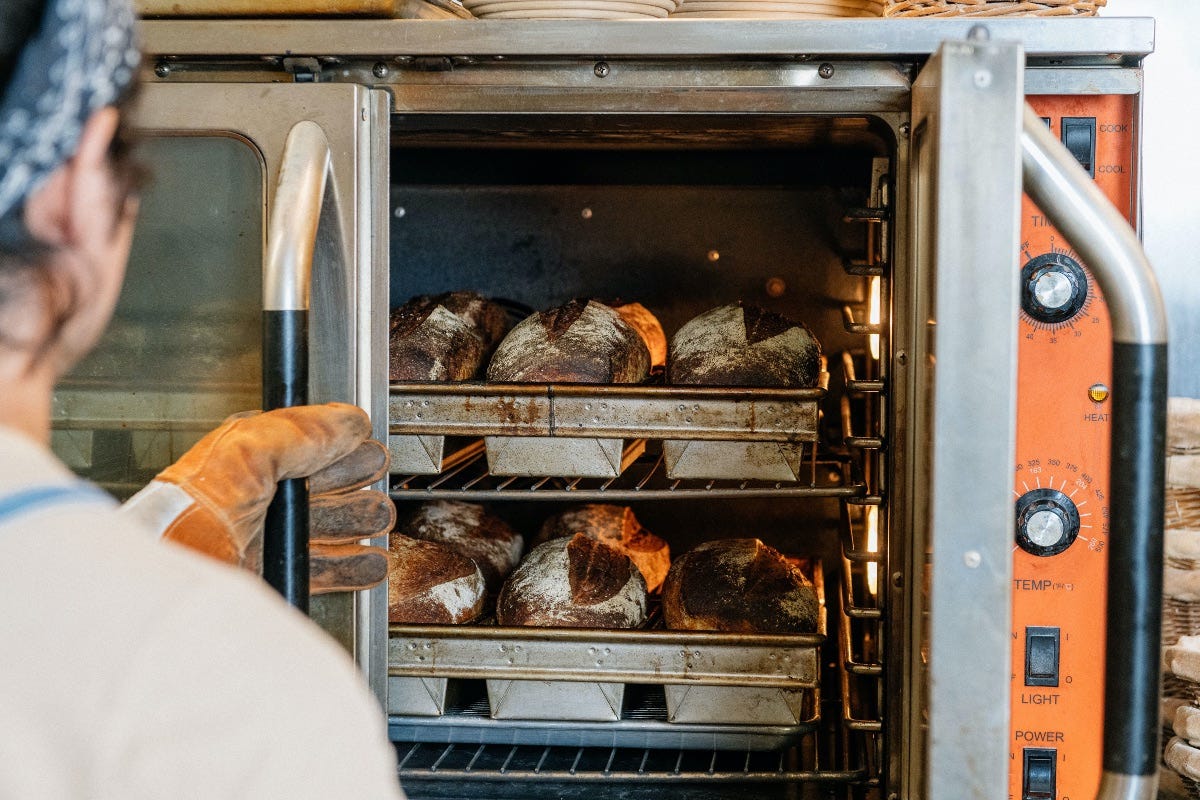
Greatest hits: Sourdough Boule and Milk Bread.
Most underrated product: The rugbrød. It's fermented for two or three days so it has a fermented flavor that you're probably not really going to get other places.
How to best enjoy your products: Put as many farmers market veggies on it as possible! Sourdough should be considered a foundation staple for lots of seared veggies, olive oil, and as many fresh herbs as possible. In the summer, I buy herbs from Furnace Creek Farm. Every sandwich I've made in the past week had three to four types of basil on it.
Food makers to follow: Right now I'll go anywhere for Chinchakriya Un’s food at Kreung Cambodia. To me, she is the most interesting chef in the city for the depth of her engagement with her culture. She's the best.
Favorite places to eat in NY: I eat at Ugly Baby all the time. [Chef Sirichai Sreparplarn] manages to find a way to speak through his food. And I go to Flushing for dumplings, it's never a bad idea.
